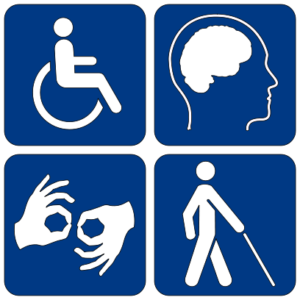Caring for Dental Patients with Special Needs
 Caring for dental patients with special needs is something that every dentist needs to be prepared for. It takes a certain bit of experience and the right equipment to effectively treat patients who are limited either because of their mobility or because of cognitive or developmental disabilities.
Caring for dental patients with special needs is something that every dentist needs to be prepared for. It takes a certain bit of experience and the right equipment to effectively treat patients who are limited either because of their mobility or because of cognitive or developmental disabilities.
In 2010, The Census Bureau reported that about 56.7 million people — 19 percent of the population — had a disability. This means that there will likely come a time in every dentist’s career that he or she will have a patient — either an adult or child — who requires special assistance or care during the treatment process.
But this isn’t something that has to throw off the entire day, nor should dentist’s feel that they should have to turn away patients that present difficulties in treatment. It all comes down to being prepared for the situation.
Speaking with Family or Caregivers
Before dentists treat any patient with special needs, they should prepare themselves and their team to treat the patient accordingly. This starts with speaking with a family member or caregiver who is familiar with the patient’s condition, abilities and special needs.
For patients with severe cognitive disabilities, anesthesia may be needed. For patients who have a more mild temperament, it is practical and appropriate to treat them without sedation.
There are also resources and training for dentists who want to learn to treat patients with disabilities. The Special Care Dentistry Association offers some good resources.
Be Prepared with the Right Equipment
While preparation and training are integral to treating patients with special needs, having the right equipment can make procedures go a lot more smoothly. Using a memory foam headrest and other dental chair accessories are proven to give dental operators easier access during procedures as well as provide comfort for patients.
Providing comfort to patients means that they are significantly less likely to move around or struggle during a procedure. Placing knee supports underneath patients is a great place to begin. The support that they provide limit fidgeting and involuntary movements that can delay procedures.
For the ultimate solution, dentists can opt for a full bodyrest system. These systems combine three of the most effective dental chair products:
- Headrests that allow dentists easier access during procedures.
- Knee rests that provide support and stability.
- Backrests that ease pain and pressure on the hips.
- Full chair pads that reduce patient anxiety by making them comfortable.
To lean more about these accessories, visit our online store to read reviews and product specification.